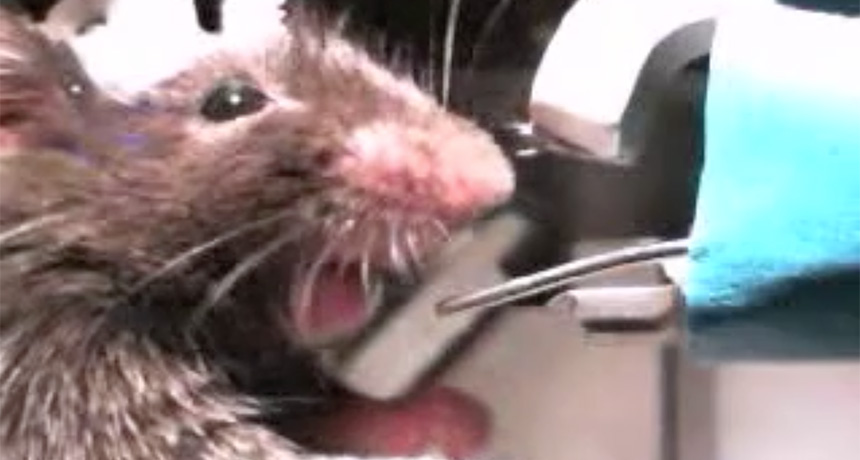Taste is all in your head
Tweaking mouse brain cells turns water bitter or sweet

SENSORY DELUSION By creating a bitter perception by tweaking nerve cell behavior in this mouse, scientists show that taste perception lies in the brain.
Y. Peng et al/Nature 2015







